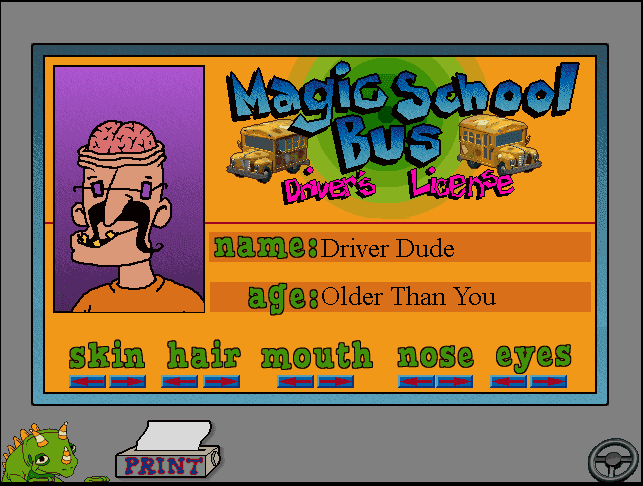Top Gaming Software Companies
- The list of quality video game companies continues to grow as the gaming industry explodes in popularity. While countless new game design studios come to market, we’d like to highlight the very best of the best. The game dev companies listed below are consistently voted to be the best in the world and hold a reputation to match.
- Video game companies today have elevated themselves to become one of the highest grossing in the technological sector and some have placed themselves higher than the others. Following are few of the top 10 richest video game companies in the world in 2019.
- Pricing considerations: The game development software market offers hundreds of solutions with varying pricing models (e.g. Subscriptions, one-time licensing, and per user, per month). Pricing also varies based on software capabilities, inclusion of advanced features (e.g. Virtual reality, 3D gaming, artificial intelligence), customer support, training, and database management.
- Lists of video game companies. Jump to navigation Jump to search. The following lists of video game companies are available: List of video game developers; List of.
This week, the International Game Developers Association (IGDA) published the results of their survey which asked 2,200 developers which company they'd most like to work for in the industry today. The number one choice may not be a surprise to many.
1. Valve
Procore Technologies. Ultimate Software. Fast Enterprises.
Top Video Game Companies
2. My own company
3. Activision-Blizzard
4. BioWare
5. Ubisoft
6. Current employer
7. Nintendo
8. Naughty Dog
9. Double Fine
10. Bethesda Game Studios
It's easy to see that most of the developers or publishers listed here are the ones generally pretty beloved by fans, while typical 'villains' of the industry (*cough* EA, Zynga) are nowhere to be found.
Privately-owned Valve takes the number one spot, beating out even the eternal dream of entrepreneurship. It should be noted that both Valve and Blizzard are two companies in the industry that perhaps more than any other focus relentlessly on the quality of a release, sacrificing strict launch timetables in the process. Not to say that Valve and Blizzard don't have deadlines, but they also don't mind waiting a decade in between sequels either. 'Crunch time' is a big issue in the industry that often demands too much of employees, so a company with a flexible schedule and an uncompromising focus on quality is going to be highly desired.
I'm honestly a bit surprised seeing Ubisoft that high up the list ahead of the much-beloved Nintendo, Naughty Dog and Double Fine. Their release schedule is getting increasingly chaotic with Assassin's Creed now an annual series, and Far Cry seeming like it's following the same path. But word travels, and it must be a nice place to work.
I would have guessed Nintendo would have been top three a while ago, but perhaps some are wary of recent decisions the company has made that have put them in a relatively uncomfortable position in the current console generation. Still, working at Nintendo in any capacity would likely be a dream job for many.
Button Hook Entry!!”19 “Traps Activate! Team Guy’s Enemy”20 “Hiruko vs. Naruto shippuden episode 131 dubbed.
And though Naughty Dog is responsible for some of the best games of the past decade, the developer has seen a huge number of high profile turnovers lately. Uncharted 4's director (Justin Richmond) and writer (Amy Hennig) both left the company this past year, as did The Last of Us art director Nate Wells. But perhaps that doesn't have much effect on lower-level employees within the company, and who wouldn't want to design the next Naughty Dog hit?
As for who's absent from the list? Insert your Crytek jokes here, but I'm genuinely a bit surprised that Riot Games didn't make an appearance. The company is well-known for its fun-loving corporate culture, and every employee I've ever met there has been practically bubbling with enthusiasm about the company. Riot may have the largest game in the world right now (League of Legends), but perhaps its focus on one game only doesn't appeal to others in the industry used to working on multiple projects rather than endlessly tweaking the same game year after year. Still, its absence is curious, given that it's even beating out Google in 'best tech companies to work for' lists like these.
In short, if you want to be happy in the industry, either start your own company or work for one that makes your favorite games. It's as easy as that.
Follow me on Twitter, like my page on Facebook, and pick up a copy of my sci-fi novel, The Last Exodus, and its sequel, The Exiled Earthborn, along with my new Forbes book, Fanboy Wars.
How should Destiny spend its $500M budget? I explain below:
'>With the explosive growth of the gaming industry, especially in recent years, new graduates are flooding into the field with stars in their eyes, hoping to create the next indie darling or blockbuster mega-hit. It's a tough business with long hours and high expectations, and there are plenty of lessons to be learned from those who are already there.
This week, the International Game Developers Association (IGDA) published the results of their survey which asked 2,200 developers which company they'd most like to work for in the industry today. The number one choice may not be a surprise to many.
1. Valve
2. My own company
3. Activision-Blizzard
4. BioWare
5. Ubisoft
6. Current employer

7. Nintendo
8. Naughty Dog
9. Double Fine
10. Bethesda Game Studios
It's easy to see that most of the developers or publishers listed here are the ones generally pretty beloved by fans, while typical 'villains' of the industry (*cough* EA, Zynga) are nowhere to be found.
Privately-owned Valve takes the number one spot, beating out even the eternal dream of entrepreneurship. It should be noted that both Valve and Blizzard are two companies in the industry that perhaps more than any other focus relentlessly on the quality of a release, sacrificing strict launch timetables in the process. Not to say that Valve and Blizzard don't have deadlines, but they also don't mind waiting a decade in between sequels either. 'Crunch time' is a big issue in the industry that often demands too much of employees, so a company with a flexible schedule and an uncompromising focus on quality is going to be highly desired.
I'm honestly a bit surprised seeing Ubisoft that high up the list ahead of the much-beloved Nintendo, Naughty Dog and Double Fine. Their release schedule is getting increasingly chaotic with Assassin's Creed now an annual series, and Far Cry seeming like it's following the same path. But word travels, and it must be a nice place to work.
I would have guessed Nintendo would have been top three a while ago, but perhaps some are wary of recent decisions the company has made that have put them in a relatively uncomfortable position in the current console generation. Still, working at Nintendo in any capacity would likely be a dream job for many.
And though Naughty Dog is responsible for some of the best games of the past decade, the developer has seen a huge number of high profile turnovers lately. Uncharted 4's director (Justin Richmond) and writer (Amy Hennig) both left the company this past year, as did The Last of Us art director Nate Wells. But perhaps that doesn't have much effect on lower-level employees within the company, and who wouldn't want to design the next Naughty Dog hit?
As for who's absent from the list? Insert your Crytek jokes here, but I'm genuinely a bit surprised that Riot Games didn't make an appearance. The company is well-known for its fun-loving corporate culture, and every employee I've ever met there has been practically bubbling with enthusiasm about the company. Riot may have the largest game in the world right now (League of Legends), but perhaps its focus on one game only doesn't appeal to others in the industry used to working on multiple projects rather than endlessly tweaking the same game year after year. Still, its absence is curious, given that it's even beating out Google in 'best tech companies to work for' lists like these.
In short, if you want to be happy in the industry, either start your own company or work for one that makes your favorite games. It's as easy as that.
Follow me on Twitter, like my page on Facebook, and pick up a copy of my sci-fi novel, The Last Exodus, and its sequel, The Exiled Earthborn, along with my new Forbes book, Fanboy Wars.
Top Gaming Software Companies In Bangalore
How should Destiny spend its $500M budget? I explain below:
GAME LIST GENERATOR.Generates a list of all games that match the criteria settings. 